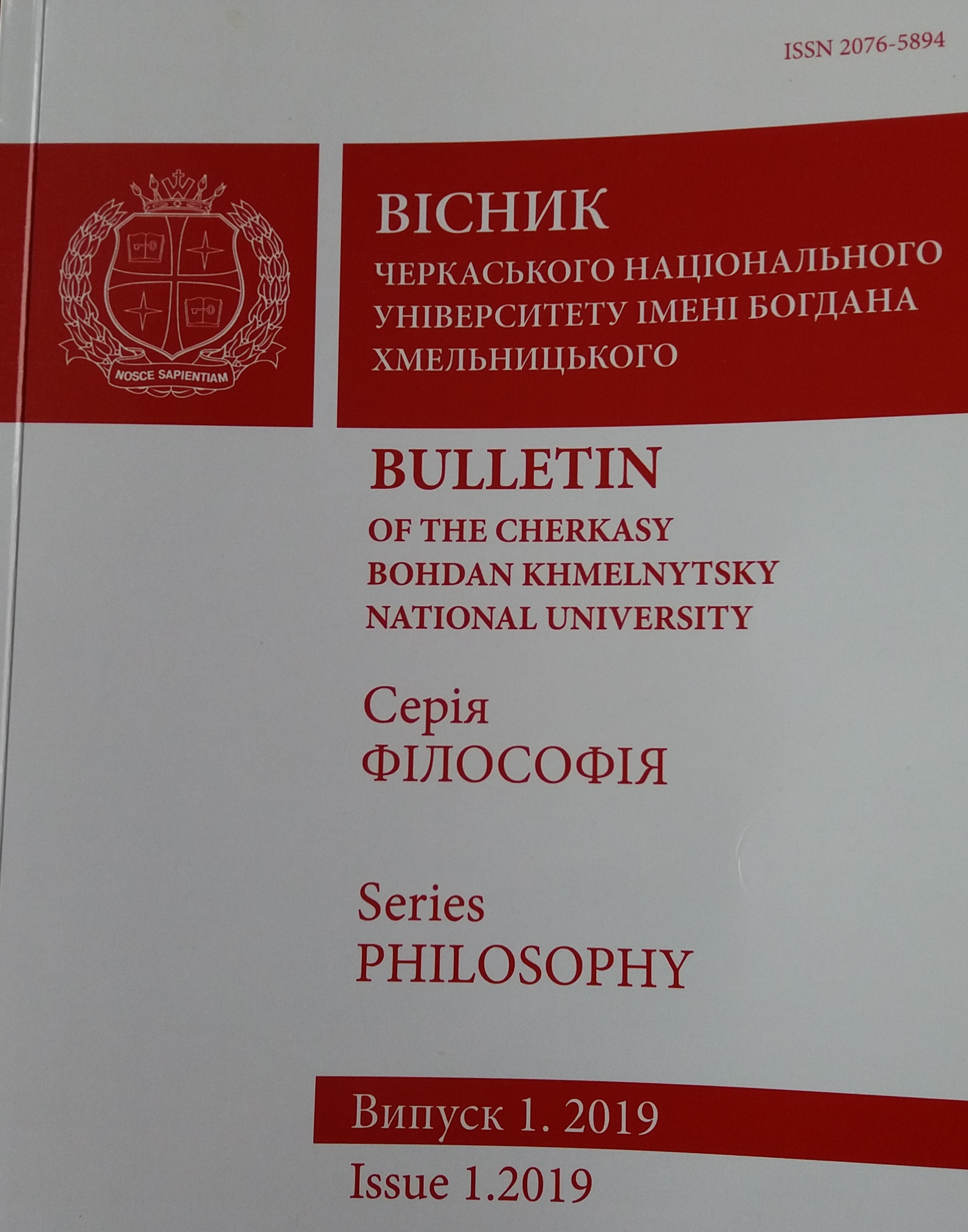GOOD AND WELFARE: ETHICAL COLLISIONS OF A PERSON’S BEING IN CALLING
##plugins.themes.bootstrap3.article.main##
Анотація
Summary. Introduction. The article researches ethical problems of realization of human calling. The author determines the essence of the conflict of values in calling experience as a collision of the intentions to reach the individual good aims, welfare and existential truth from the one hand and of the ethical good and over-personal, transcendental good aims from the other hand.
The purpose of the study is to find out the ethical grounds for the solutions of value conflicts in the realization of calling by person.
Methods. The research is based on the ideas of the ethics of Aristotle, E. Levinas, Yе. Bystrytsky, A. Baumeіster and V. Malakhov. The author is doing his own conceptual analysis and phenomenological study of calling.
Results. The study proves the importance of ethical evaluation and of building of hierarchy of goods of a person on the basis of ethical reasoning. There are different obligations in calling – before oneself, before the other people and before the over-personal world of ethical ideas and religious believes. Calling is a matter of being and we are responsible for our own being before those who gave it – our family, the God and before ourselves. The society does not give us being, but requires ethical behavior from us. Thus there is a double responsibility – for the purpose and fulfilment of existence and for its ethical value. The study argues that the last moral obligation exceeds the first existential. In the end the highest possible good and wellbeing coincides with ethical goodness. The author relies on Aristotle’s argument that every being intends to a good purpose. Therefore the evil intention will be a contradiction in the notion of calling. The essence of the ethical problem is how to define the highest good in every individual life. In that context the study researches the difference of motives of individual inclinations and of the call of calling. The first takes the freedom of individual while the last calls for it to be realized. The call is everywhere over-personal. It is a motive to transcendence for realization of over-personal values.
The originality of the study consists in the analysis of the relations of ethical good and personal existential good and welfare in the realization of human calling. The author proves that every calling has a good purpose and vision of the highest possible good that coincides with moral good.
For the conclusion the study posits that only those desires and dreams of a person which subordinate to the over-personal good and service for the benefit and betterment of the world can be the factors and origins of calling.
##plugins.themes.bootstrap3.article.details##
Посилання
Weber, М. (1990). Selected works. Мoscow: Progress (in Russ.)
Weber, М. (1994). The Protestant Ethics and the Spirit of Capitalism. Кyiv: Оsnovy (in Ukr.)
Levinas, E. (2000). Selected works. Тоtality and Infinity. Мoscow; SPb.: University’s Book (in Russ.)
Emmanuel Levinas: The way to the Other. Selection of articles and translations, devoted to100-anniversary of E. Levinas (2006). SPb.: Publishihing of SPbSU (in Russ.)
Baumeister, A. (2014). Being and Good. Vinnytsia: T. P. Baranovska (in Ukr.)
Joldersma, C. (2014). A Levinasian Ethics for Education’s Commonplaces: Between Calling and Inspiration. N.Y.: Palgrave MacMillan
Bigham, J. T., Smith, S. J. (2008). Called to Teach: Interpreting the Phenomenon of Calling as a Motivating Factor. Life@School, 7, 1, Fall issue, 9-12. Faculty Publications and Presentations. Paper 99.
Мalakhov, V. A. (2008). The right to be yourself. Кyiv: Dukh і Litera (in Ukr.)
Bystrytsky, Ye. (2018). Existential truth and post-truth. Philosophical thought, 5, 54-71 (in Ukr.)
Аristotle (1976). Меtaphysics. Works, 1. Мoscow: Thought (in Russ.)
Аristotle (1983). Big Ethics. Works, 4, 295-374. – Мoscow: Thought (in Russ.)
Аristotle (1983). Nicomachean Ethics. Works, 4, 53-294. – Мoscow: Thought (in Russ.)
Luther, М. (1994). Time of silence is gone: Selected works 1520-1526. – Kharkov: Оkо (in Russ.)

